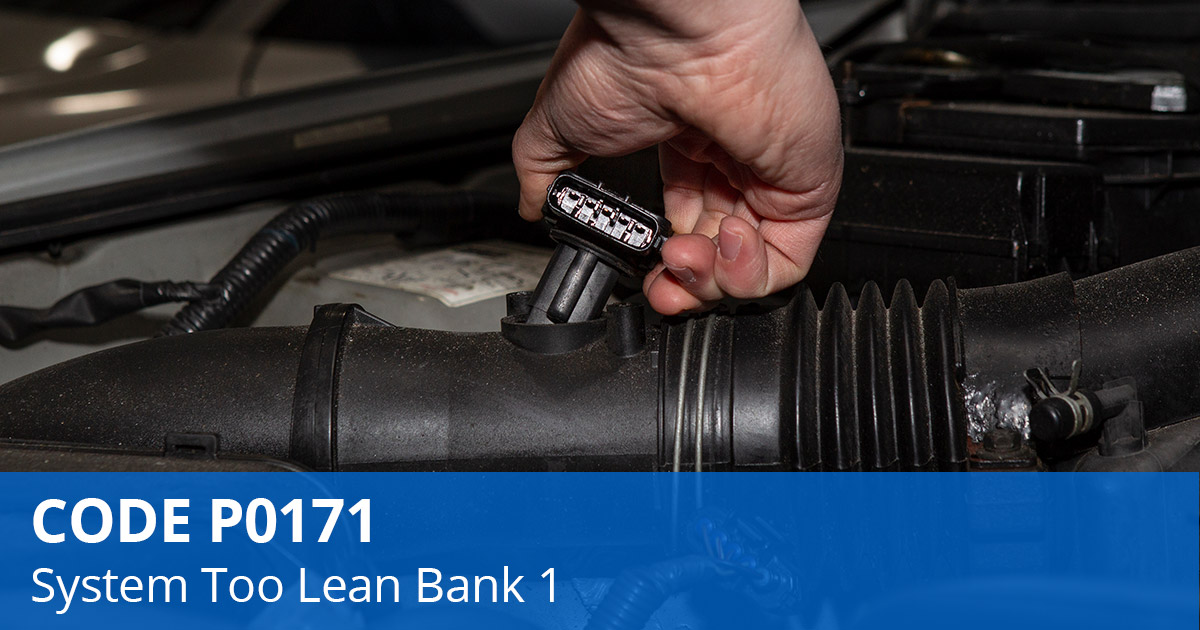Decoding the Enigma: GM Codes P0171 and P0174
Your car's check engine light is a cryptic oracle, flashing warnings of internal combustion mysteries. Among its many pronouncements, two codes, P0171 and P0174, frequently appear, leaving drivers bewildered. These codes, indicating lean fuel mixtures in banks 1 and 2 respectively, can signify a range of underlying issues. Understanding these codes is crucial to maintaining your vehicle's performance and longevity.
Imagine your engine as a finely tuned orchestra. Fuel and air mix in precise proportions to create the combustion symphony that powers your car. When this balance is disrupted, the harmony falters. P0171 and P0174 indicate a lean condition, meaning there's too much air relative to fuel in the mixture. This lean mixture can lead to decreased performance, rough idling, and even engine damage in severe cases.
These diagnostic trouble codes (DTCs) emerged as part of the OBD-II (On-Board Diagnostics II) standardization in the late 1990s. This system revolutionized automotive diagnostics, providing a common language for mechanics and car owners to understand engine issues. P0171 and P0174 are critical components of this diagnostic framework, alerting drivers to potential problems with the air-fuel mixture.
The implications of ignoring these codes can be significant. A persistently lean mixture can lead to increased combustion temperatures, potentially damaging engine components. Furthermore, it can negatively impact fuel economy and increase harmful emissions.
Diagnosing the root cause of these codes can sometimes feel like navigating a complex maze. A variety of culprits can contribute to lean mixtures, ranging from faulty oxygen sensors and mass airflow sensors to vacuum leaks and fuel delivery issues. Understanding these potential causes is the first step in unraveling the mystery.
A common cause is a faulty mass airflow (MAF) sensor, which measures the amount of air entering the engine. An incorrect reading can lead the engine control module (ECM) to miscalculate the required fuel, resulting in a lean mixture.
Vacuum leaks, often caused by cracked or deteriorated hoses, can introduce unmetered air into the engine, disrupting the air-fuel ratio. Similarly, a malfunctioning fuel pump or clogged fuel filter can restrict fuel flow, leading to a lean condition.
Another potential culprit is a faulty oxygen sensor. These sensors monitor the exhaust gases and provide feedback to the ECM to adjust the air-fuel ratio. A failing sensor can provide inaccurate readings, leading to an incorrect mixture.
While a lean condition itself doesn't offer any benefits, correctly diagnosing and addressing P0171 and P0174 can lead to improved fuel economy, smoother engine operation, and reduced emissions.
Advantages and Disadvantages of Properly Addressing P0171/P0174
| Advantages | Disadvantages |
|---|---|
| Improved Fuel Economy | Diagnostic costs |
| Smoother Engine Performance | Potential for misdiagnosis |
| Reduced Emissions |
Frequently Asked Questions:
Q: What are P0171 and P0174?
A: These are diagnostic trouble codes indicating a lean fuel mixture.
Q: What causes these codes?
A: Several factors, including faulty sensors, vacuum leaks, and fuel delivery problems.
Q: What are the symptoms of a lean mixture?
A: Rough idling, decreased performance, and potential engine damage.
Q: How do I diagnose these codes?
A: Use an OBD-II scanner and consult repair manuals or a qualified mechanic.
Q: Can I drive with these codes?
A: It's best to address the issue promptly to avoid potential damage.
Q: How much does it cost to fix these codes?
A: Costs vary depending on the underlying cause.
Q: What are some common solutions?
A: Replacing faulty sensors, repairing vacuum leaks, or addressing fuel delivery issues.
Q: How can I prevent these codes?
A: Regular maintenance and timely repairs can help prevent these issues.
Tips and Tricks:
Start by checking for obvious vacuum leaks. Inspect hoses and connections for cracks or damage. Use a smoke machine for more thorough leak detection.
In conclusion, the cryptic messages of P0171 and P0174, though initially daunting, are simply calls for attention from your engine. Understanding these codes empowers you to take action, preventing further damage and ensuring your vehicle runs smoothly. Properly addressing these lean mixture indicators not only safeguards your engine's health but also optimizes its performance and efficiency. Ignoring these warning signs can lead to costly repairs and decreased engine lifespan. Taking a proactive approach, employing diagnostic tools, and consulting with qualified mechanics will unlock the secrets of these codes, keeping your car humming along the open road. Addressing P0171 and P0174 is an investment in the longevity and reliability of your vehicle, ensuring countless miles of trouble-free driving. Don't let these cryptic codes remain a mystery – decode them and take control of your car's health.
Shifting mob mentality transforming collective behavior
Unlocking your starbucks rewards a guide to gift card balances
From streets to canvas the power of mexican style aztec gangster chicano art














